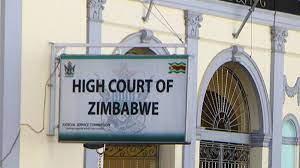News / National
Bus operator ordered to pay US$145,000 for fatal crash
14 hrs ago | Views

Mandeep Tours, a luxury bus operator, has been ordered to pay US$145,042.94 in damages to Govasberg, another bus company, for the total loss of its bus in a tragic head-on collision that claimed 13 lives on October 6, 2019.
The accident occurred on the highway between Kwekwe and Gweru when a Gokwe-bound Mandeep bus collided with a Govasberg bus traveling toward Gweru. Both drivers perished in the crash, which left several passengers severely injured.
The collision was attributed to negligence by the Mandeep driver, who reportedly dozed off, lost control of the bus, and veered into the oncoming lane.
Interplan Investments (Pvt) Ltd, the owner of Govasberg, filed a lawsuit against Reclenix Investments (Pvt) Ltd, trading as Mandeep Tours, seeking compensation for the loss of its bus.
Justice Tawanda Chitapi ruled in favor of Interplan, awarding US$145,042.94 as the replacement cost of the destroyed bus, with interest at 5 percent per annum until full payment. An additional US$1,120 was granted for towing costs, also subject to 5 percent interest.
However, the court dismissed Interplan's claim for lost income, citing insufficient evidence.
Clarion Insurance, the insurer of the Mandeep bus, was not held liable for additional damages beyond the statutory US$2,000 it had already paid to Interplan. Additionally, the court absolved Reclenix director Happiness Gogwe of personal liability, emphasizing the principle of corporate legal personality.
The court's decision was based on extensive witness testimonies and expert analysis.
Constable Lizette Dhenya, a passenger on the Mandeep bus, testified that the driver swerved into the oncoming lane, causing the collision. Her account was consistent with other witnesses and evidence from the scene.
Sergeant Lovemore Tibugwe, an experienced accident evaluator, testified that the Mandeep bus was traveling at 110 km/h, exceeding the 80 km/h speed limit for buses. His analysis showed that the collision occurred in the Govasberg bus's lane, with evidence at the scene supporting the conclusion that the Mandeep driver was at fault.
Lazarus Chigova, Interplan's operations director, provided documentation to confirm the Govasberg bus's value and towing costs. However, his claim for lost income was dismissed due to insufficient supporting evidence.
The defence called witnesses, including a passenger and a Reclenix manager, but their testimonies were deemed unconvincing or irrelevant to the cause of the accident.
Justice Chitapi criticized both parties' legal teams for shortcomings in their arguments and documentation. He highlighted the importance of proper pleadings, noting that defective pleadings hinder the administration of justice.
The judge emphasized that companies are separate legal entities, and shareholders or directors cannot be held personally liable unless exceptional circumstances justify piercing the corporate veil.
Justice Chitapi acknowledged the complexity of the case, which involved intricate issues of liability and damage assessment. Despite procedural flaws, the court resolved the case based on evidence presented during the pre-trial conference.
This ruling underscores the importance of corporate accountability and adherence to safety regulations in the transport sector, while also emphasizing the need for robust legal arguments in civil litigation.
The accident occurred on the highway between Kwekwe and Gweru when a Gokwe-bound Mandeep bus collided with a Govasberg bus traveling toward Gweru. Both drivers perished in the crash, which left several passengers severely injured.
The collision was attributed to negligence by the Mandeep driver, who reportedly dozed off, lost control of the bus, and veered into the oncoming lane.
Interplan Investments (Pvt) Ltd, the owner of Govasberg, filed a lawsuit against Reclenix Investments (Pvt) Ltd, trading as Mandeep Tours, seeking compensation for the loss of its bus.
Justice Tawanda Chitapi ruled in favor of Interplan, awarding US$145,042.94 as the replacement cost of the destroyed bus, with interest at 5 percent per annum until full payment. An additional US$1,120 was granted for towing costs, also subject to 5 percent interest.
However, the court dismissed Interplan's claim for lost income, citing insufficient evidence.
Clarion Insurance, the insurer of the Mandeep bus, was not held liable for additional damages beyond the statutory US$2,000 it had already paid to Interplan. Additionally, the court absolved Reclenix director Happiness Gogwe of personal liability, emphasizing the principle of corporate legal personality.
The court's decision was based on extensive witness testimonies and expert analysis.
Constable Lizette Dhenya, a passenger on the Mandeep bus, testified that the driver swerved into the oncoming lane, causing the collision. Her account was consistent with other witnesses and evidence from the scene.
Sergeant Lovemore Tibugwe, an experienced accident evaluator, testified that the Mandeep bus was traveling at 110 km/h, exceeding the 80 km/h speed limit for buses. His analysis showed that the collision occurred in the Govasberg bus's lane, with evidence at the scene supporting the conclusion that the Mandeep driver was at fault.
Lazarus Chigova, Interplan's operations director, provided documentation to confirm the Govasberg bus's value and towing costs. However, his claim for lost income was dismissed due to insufficient supporting evidence.
The defence called witnesses, including a passenger and a Reclenix manager, but their testimonies were deemed unconvincing or irrelevant to the cause of the accident.
Justice Chitapi criticized both parties' legal teams for shortcomings in their arguments and documentation. He highlighted the importance of proper pleadings, noting that defective pleadings hinder the administration of justice.
The judge emphasized that companies are separate legal entities, and shareholders or directors cannot be held personally liable unless exceptional circumstances justify piercing the corporate veil.
Justice Chitapi acknowledged the complexity of the case, which involved intricate issues of liability and damage assessment. Despite procedural flaws, the court resolved the case based on evidence presented during the pre-trial conference.
This ruling underscores the importance of corporate accountability and adherence to safety regulations in the transport sector, while also emphasizing the need for robust legal arguments in civil litigation.
Source - The Herald





































